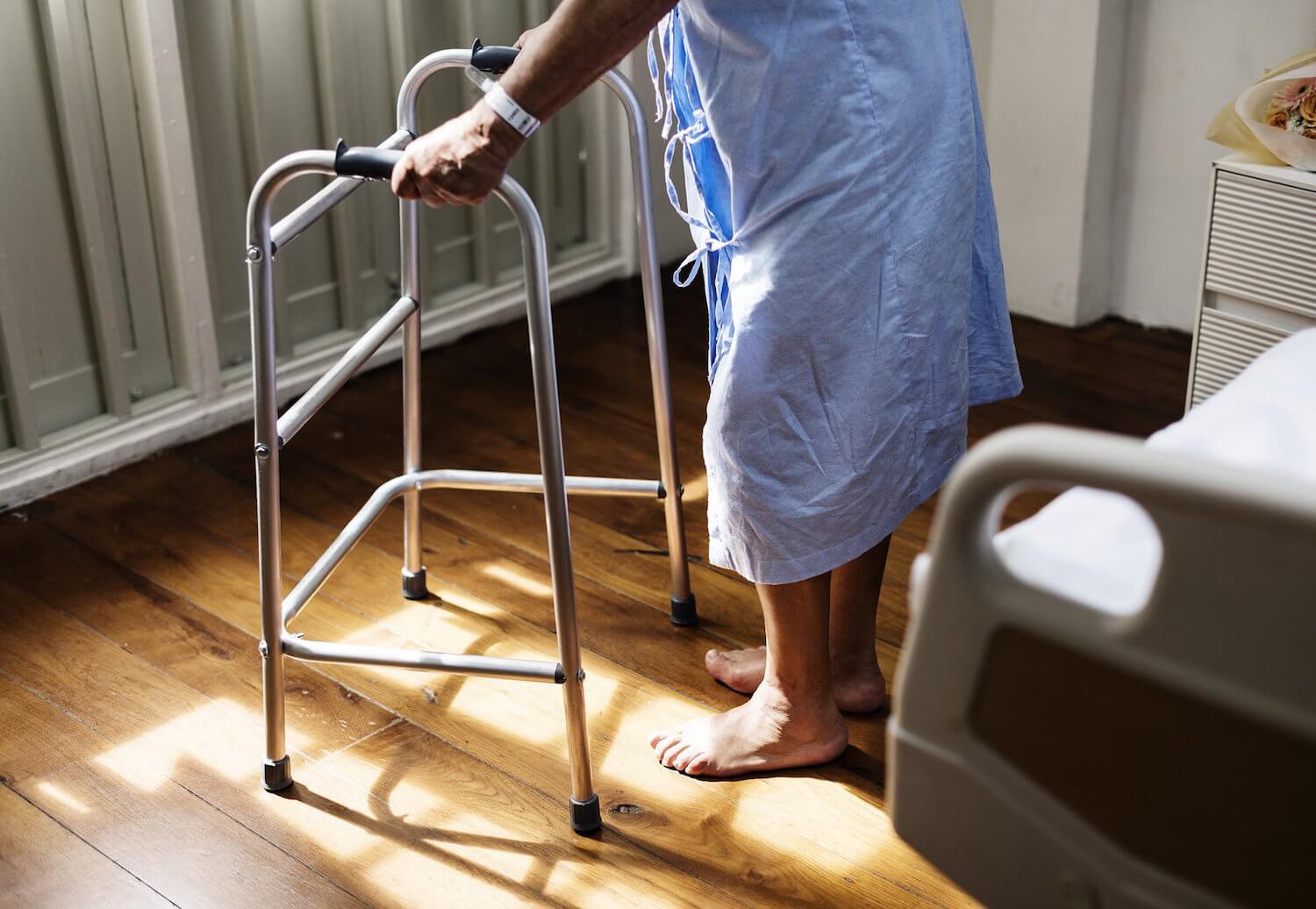Two years into the pandemic, the government is still keeping older adults locked down in care homes
The main concern following the Covid-19 pandemic outbreak was to protect the elderly, a vulnerable population group, from contracting the virus. Now, experts say we failed the already isolated cohort living in care homes by continuing to keep them in near total social exclusion and call for immediate relaxation of measures.
Early retiree Androulla Sofroniou is one of the younger residents at the Nicosia care home where she lives, at a mere 64 years. In the pre-Covid era, she recollects the various morning activities from people coming to sing or help them make handcrafted items.
The retired nurse used to take a small walk with her foldable wheel walker after eating her lunch at 11.30am and before her daughter picked her up on the way to pick up her kids from primary school.
Androulla would stay at her daughter’s house with her cherished grandchildren until late in the afternoon when her son-in law would drive her back usually in time for dinner at 5.30pm. During the weekends, she would receive long visits from her two younger daughters.
But her routine was turned upside down after the first coronavirus cases arrived on the island in March 2020.
For the last two years, the mother of three continues to be awoken at 6am, only to get dressed and stare at uninteresting television programmes after breakfast and coffee. Every day, she sits in the same old yellow armchair waiting for the next meal or something fun to come on the telly.
“I sit on a chair all day, so time passes tortuously slowly,” she says.
Due to the lack of any type of physical exercise, she noticed she now eats less food.
“My appetite has shrunk because I am not moving. Before, I used to walk a little outside. Now we are mostly indoors.”
Despite a high vaccination coverage among nursing home residents, the health ministry maintains draconian protective measures. Yet, it did Androulla little good. In the bitterest of ironies, fully vaccinated Androulla recently contracted Covid during an infection outbreak at the home.
According to the protocol in force from Sunday, nursing home residents are allowed two brief weekly visits by a single relative provided the unvaccinated present a 48-hour negative rapid test or a or 72-hour PCR test. They are also permitted up to two overnight stays, however this requires a period of self-isolation and testing afterwards.
These protocols may depend on the care home and are at times even stricter. In Androulla’s case, residents are only allowed one 20-minute visit per week.
“Elderly people need to socialise. Nursing homes should not be like prisons, where you just wake up and wait for a plate of food, then go to bed before the sun rises and you do it all over again,” geriatrician and head of the National Gerontology Centre NGO Marios Kyriazis told the Sunday Mail.
“What difference does it make if people stay for 30 minutes or three hours,” wondered Kyriazis, insisting the time limit on visits should be lifted.
Αndroulla’s daughter, 39-year-old Philio Kyriacou agrees. She said she was “extremely sad” that she was prohibited from bringing her mother home since they go to see her anyway.
“At the end of the day, the sociopsychological consequences that these measures have, are at times much worse than if a pensioner would contract Covid,” Kyriacou added.
The restrictive measures may aim to protect them from illness, but loneliness, depression, and stress may also kill a vulnerable elder person, says Kyriazis.
He explains that nursing home care depends on three pillars: the doctor, nursing and relatives, and all three must work together or else the level of care suffers.
The pandemic resulted in total lockdown periods during which care home residents were unable to visit the doctor for issues considered non-essential, while face masks have made communication harder for older people with hearing difficulties or dementia.
“There are many articles that show how loneliness and isolation in elderly people increases mortality rate,” said Kyriazis, the co-author of a paper looking at how social isolation is associated with a higher risk of morbidity in Cyprus.
Published on PubMed in August 2021, the paper had called on the health authorities to develop a programme of support for older individuals to include medical, social, physical and psychological elements.
Citing a recent scientific study, Kyriazis said it confirms their estimation that in the coming years, there will be a significant increase in the death numbers of such older people in Cyprus. A possible cause for this spike, he said, is isolation.
“They [authorities] are either unaware that isolation carries these risks, or they know about them and are doing nothing,” Kyriazis said.
Apart from relaxing the visitation rules, the doctor recommended reintroducing school visits or visits by young volunteers who would exchange views and experiences with the residents.
But the health ministry is not planning to dramatically relax care home restrictions yet.
“A recommendation will be submitted to the social welfare services to lift the restriction on the number of overnight stays,” health ministry spokesman Constantinos Athanasiou told the Sunday Mail, noting that the relevant protocol of self-isolation after the overnight stay will still be followed.
Government advisor on coronavirus issues Petros Karayiannis said this will depend on the further improvement of the epidemiological picture and the number of coronavirus hospitalisations. Just four virus patients were being treated in the Famagusta reference hospital for coronavirus, Health Minister Michalis Hadjipantelas said on Wednesday.
Justifying the remaining restrictions, the professor of microbiology and molecular virology at the medical school of the university of Nicosia said: “nursing homes are the most vulnerable spaces because all residents are elderly.”







Click here to change your cookie preferences